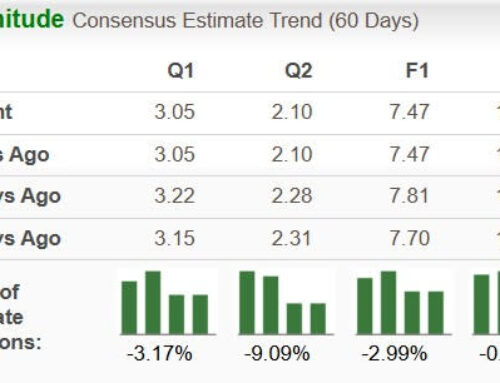New Northwell facility to study good and bad of cannabis
November 24, 2025
Hofstra University professor and clinical psychologist Nehal Vadhan sat in a lab next to three metal and glass pipes that, if he receives federal authorization, will be filled with marijuana in several months.
Much of the research center, which sits inside a building with cinder-block walls on the Queens-Nassau County line in Glen Oaks, has an institutional feel. But the specialized ventilation systems for cannabis smoke, a room for psychedelics with a reclining lounge chair and a bar set up with stools facing a one-way mirror signal that this is a different type of lab.
Tens of millions of Americans use marijuana every year, many just to get high, others because they believe it will help with a medical condition. Millions more take psychedelics. Yet there has been relatively little rigorous scientific research into the drugs’ effects, good and bad, experts say.
The Northwell Health lab — called the Human Neuropsychopharmacology Laboratory — is applying to the federal government to join what experts believe are only about 10 labs nationwide in which cannabis can be legally dispensed on-site to subjects.Researchers will then observe the participants after they consume marijuana, as well as psychedelics and alcohol,to glean information that surveys and other methods cannot obtain.
WHAT NEWSDAY FOUND
-
A Northwell Health laboratory set to open in January will study the potential positive and negative effects of cannabis and psychedelic drugs, as well as alcohol. It would be one of the few to legally dispense cannabis and psychedelics on-site.
-
Research on cannabis and psychedelics has been limited because of tight federal restrictions on their use in studies, experts say.
- Some people use the drugs for medical conditions despite the lack of solid evidence of their benefits. The absence of extensive data also prevents some health care providers from recommending the drugs, even though they may help.
The lab is scheduled to open in January. Recruitment of human subjects for studies will likely begin several weeks later, said Vadhan, the lab’s director.
Marijuana and psychedelic drugs had once been legally used in the United States for medical or psychological treatment but later were categorized with heroin as the nation’s most tightly regulated drugs, deemed to have “no currently accepted medical use.”
That designation, and the thick raft of regulations for scientific studies that go along with it, is why research into the drugs has been so limited, experts say.
“We’re desperately in need in our society for carefully controlled studies on cannabis,” said Margaret Haney, director of Columbia University’s Cannabis Research Laboratory and a professor of neurobiology in psychiatry, who is not associated with the Northwell lab but welcomed its establishment.

While the Justice Department is reviewing a proposal that would make it easier for researchers to obtain and study cannabis, the existingfederal regulations are one reason why development of the lab has taken nine years, Vadhan said.
In one lab room are two heavy safes — so heavy they are housed in the basement in part because of concerns about damage to a higher floor — that will contain the cannabis and psychedelics. Thestate Bureau of Narcotic Enforcementand U.S. Drug Enforcement Administration must first inspect those safes, and other parts of the lab, before giving approval to start research, Vadhan said.
Although marijuana is legal under state law, researchers can’t go to the state-licensed cannabis dispensary a half-mile away, buy marijuana and bring it back to the lab. Cannabis is still illegal under federal law, so Vadhan must go through the lengthy process of obtaining marijuana through the National Institute on Drug Abuse.
One-way mirrors
Providing cannabis and psychedelics on-site not only will allow for close observation with one-way mirrors but also control of the dosage and potency of the substances, for more precise comparisons than in research that uses surveys and other methods, Vadhan said.
In studying people taking psychedelics in the lab, there always will be a therapist present because “people can go in all kinds of directions once they’ve taken a psychedelic — positive, negative, neutral,” Vadhan said as he stood in the lab’s psychedelics room, where subjects will sit in a reclining blue-cushioned chair.
Observing people while they are under the effect of psychedelics, and having a therapist there, rather than relying on, for example, self-reporting, may lead to a better understanding of the drugs’ potential therapeutic uses, he said.
“If they’re going in a direction that’s uncomfortable and aversive, the therapists are there to ground them, to help redirect them and bring them back to sort of more positive thoughts that would engender the clinical change that we’re hoping for,” he said.
One of the first studies at the Northwell lab will be on whether psilocybin, a hallucinogen produced by certain types of mushrooms, can treat social anxiety disorder, he said. The 75 people in the study will be divided in three, with one group receiving psilocybin, another THC — the chemical in marijuana that causes a high — and another a placebo, a substance that should have no effect. Participants are not told which they will receive.
The THC will be part of the study because one problem with past research on psychedelics is that subjects could easily guess that they received a placebo because the lack of any reaction. That leads to a potential “placebo effect,” in which the brain convinces the body that a placebo is an effective treatment. Giving a substance like THC that does cause a high will “make it harder for people to tell,” Vadhan said.
Placebos also are essential in cannabis research, where “the placebo effect is enormously high,” said Haney, the Columbia professor.
If, because of the placebo effect, people forgo traditional medicines that have been extensively researched, and instead use cannabis, which lacks solid evidence for many conditions, it could harm their health, she said.
That’s why more extensive research is critical — to determine when cannabis can be effective, why it is effective, and at which doses and for which patient populations, said R. Lorraine Collins, director of the Center for Cannabis and Cannabinoid Research at the University at Buffalo and a public health professor there. It’s also necessary to better understand the harms of cannabis, including on brain development in young people, she said.
Initially, cannabis research at the Northwell lab will focus on how it can help or harm people with mental health disorders, like anxiety and bipolar disorder, which will set it apart from most other labs that study marijuana, Vadhan said. Later research may look at the potential benefits of cannabis for other medical conditions, he said.
The lab also will examine alcohol use among people with mental illness, who have a higher rate of use of alcohol and other substances than the general public, he said. One goal is to examine what motivates people with mental disorders to drink and use other substances, even though those substances can exacerbate their symptoms, he said.
Cannabis misinformation
The cannabis research is especially important amid widespread beliefs that marijuana helps treat a wide array of ailments, Haney said.
Evidence clearly indicates that cannabis has some medical uses — such as to reduce nausea in people on chemotherapy and to increase appetite — but studies are much less conclusive on combating chronic pain, anxiety and sleep problems, the three most common conditions for which people use cannabis, she said.
Dr. Diana Martins-Welch, director of supportive oncology at Northwell’s R.J. Zuckerberg Cancer Center, has recommended cannabis to more than 2,000 cancer patients over the past decade. The large majority report benefits, including reduced nausea and pain, a bigger appetite, better sleep, and less anxiety.
Martins-Welch’s focus is improving patients’ quality of life, including for those who may only have months to live.
“In hospice care, we’re just looking to help patients live better and be more comfortable,” she said. “I’m not waiting for the data to be produced, because my patients don’t have that kind of time.”
But the lack of extensive research on cannabis prevents some health care providers from recommending it, one reason labs like the new Northwell one are so important, she said. Research also will help physicians like herself who currently recommend cannabis better understand how to best use it to help their patients, she said.
“There’s a lot more that we don’t know than we do know,” she said.
Search
RECENT PRESS RELEASES
Related Post





